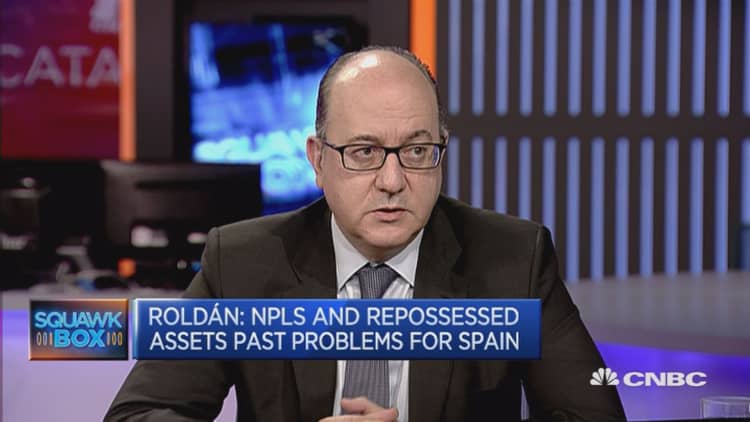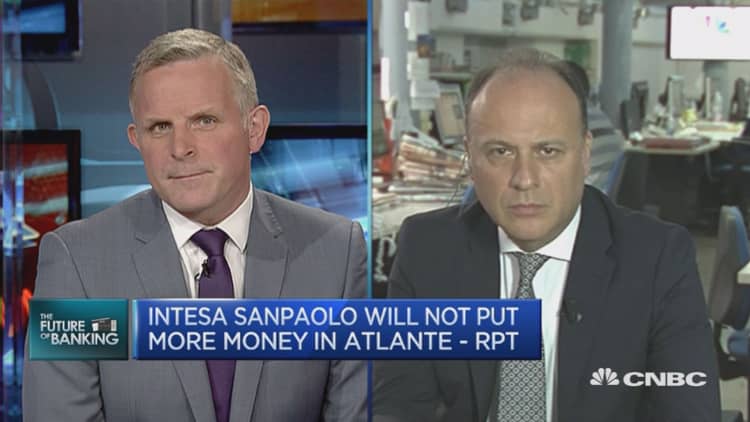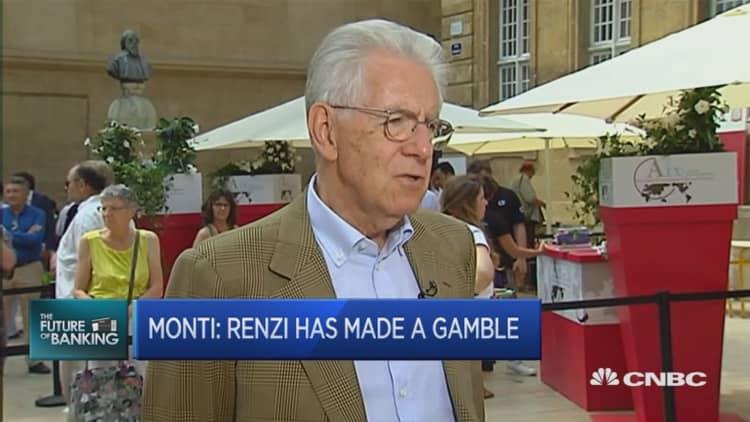The citizens of Italy will vote to leave the euro zone after an impending recession and a shift in power inside the country's political system, according to Societe Generale's notoriously bearish strategist, Albert Edwards.
"The people are angry," Edwards said in a note Friday, highlighting a poll in May by IPSOS Global that showed almost half of Italians would vote "out" in a referendum on their country's EU membership.
"Italy simply does not appear to be able to grow inside the euro zone and more importantly probably never will ... after the next recession I believe a majority of Italians will have had enough of the euro zone experiment and vote in the radical Five Star Movement," he added.
Anti-establishment Five Star Movement (M5S) is now Italy's most popular party after a poll on Wednesday showed that it would win an election over Prime Minister Matteo Renzi's Democratic Party (PD), according to Reuters.
This comes at a time when Renzi is trying to deal with a fragile banking system, bogged down by non-performing loans. A referendum on constitutional reform this October is also looming and could well usher in new elections.
But Edwards suggests that the Italian bank crisis - and also Brexit - are not a cause of the world's economic problems, but just symptoms. The real issue is that the country is "condemned to perpetual economic stagnation within the strictures of the euro zone," he said, suggesting that recapitalizing the Italian banks will not solve their problems.
With a slew of figures, the Societe Generale strategist detailed in his research note how unemployment has risen since the mid-2000s and how productivity has stagnated. Going forward, he believes Renzi should announce an "aggressive fiscal pump" despite the complaints that might arise from Germany and the European Commission.
"Italy has played by the fiscal austerity rules for too long. Although its problems are structural in nature, after running an underlying primary fiscal surplus for some 20 years it is time to break free from its self-imposed deflationary fiscal chains," he added.
On Wednesday, Renzi came out swinging with comments about derivative exposure for some European banks which he said represented a more acute problem than those facing his own country.





Reports at the weekend had hinted that the Italian prime minister is hoping to bail out the banking sector, despite contravening EU rules, as opposed to a bondholder "bail-in", as Italian households have a heavy exposure to the asset class.
Analysts at Citi believe that any state intervention will likely be small and confined to only a few lenders to make sure it keeps broadly in line with EU rules.
"As such, it is unlikely to represent a decisive fix of Italy's banking problems. Retail investors will probably be protected as fears of a severe market backlash and subsequent deposit outflows may prevail," a team of analysts, led by Giada Giani, said in a note on Wednesday.
"Such a compromise may limit the negative political fallout for PM Renzi, but increased concerns among households about their savings are likely to hit the already-dwindling popularity of the government in any case," they added.


